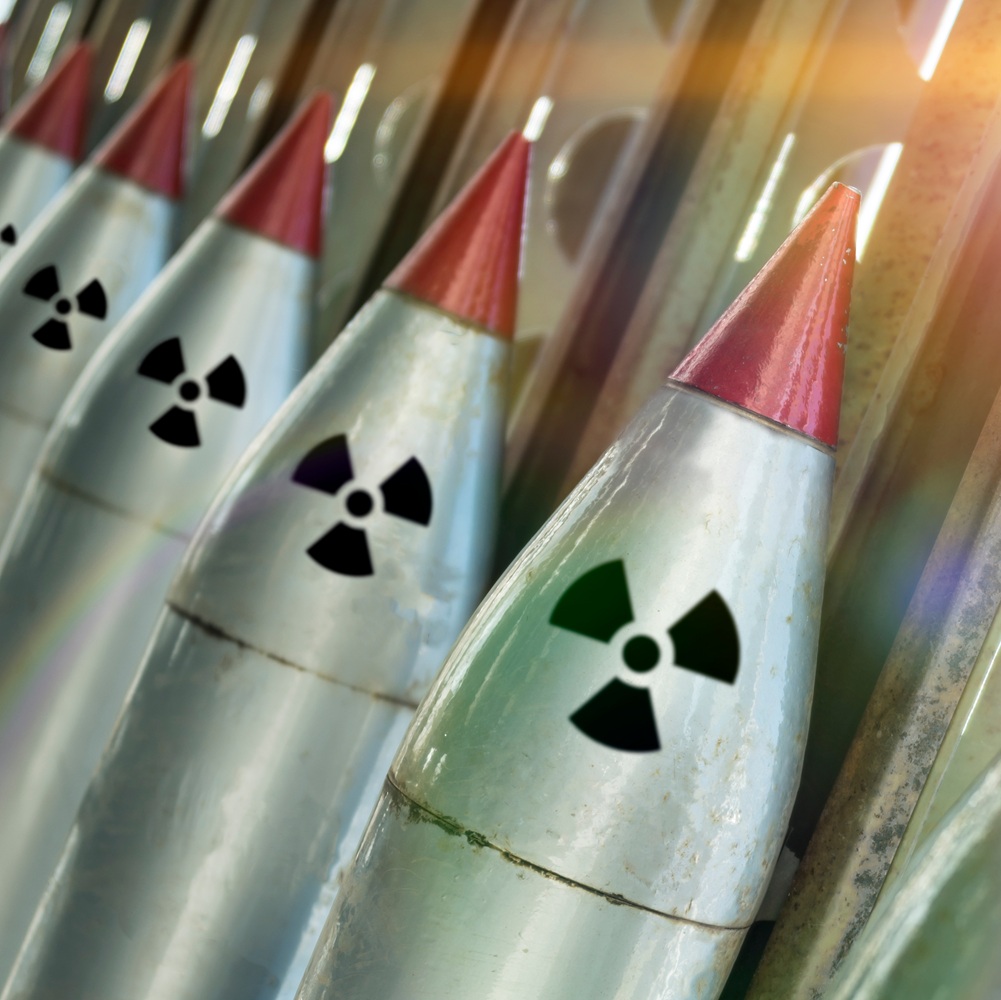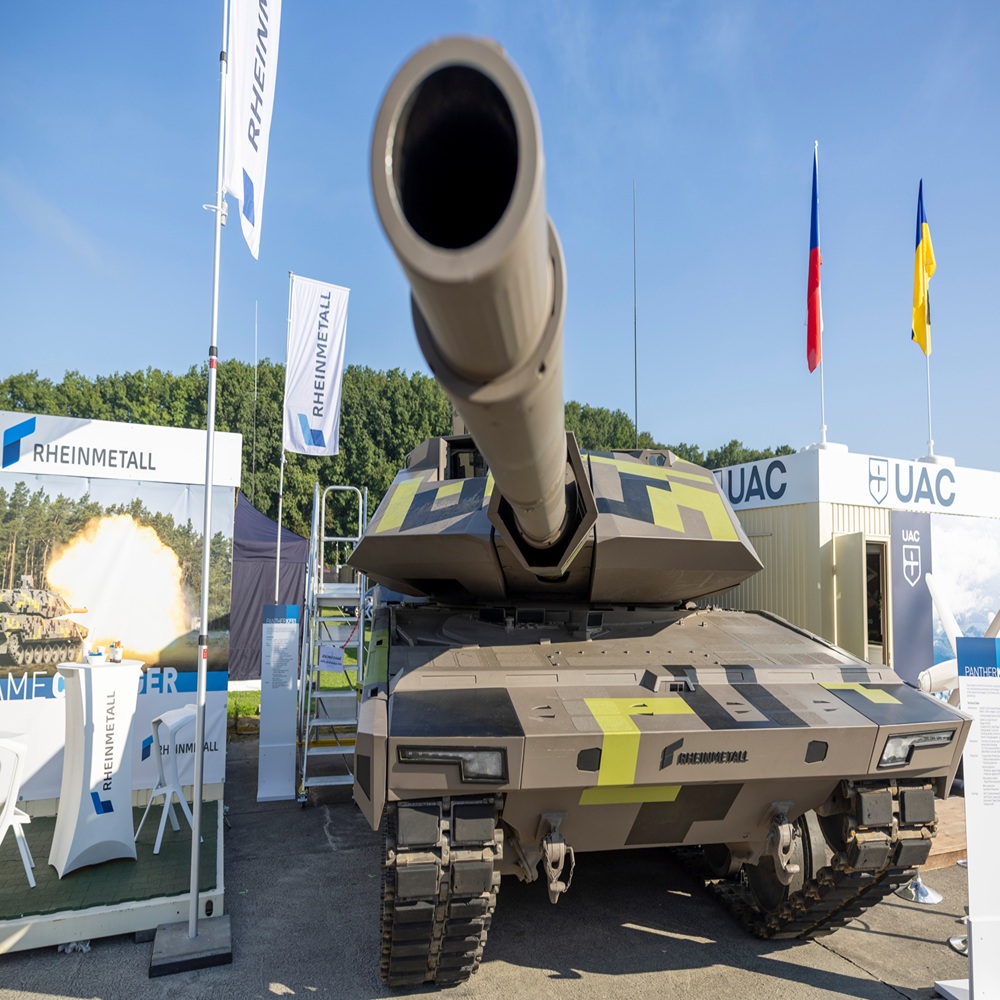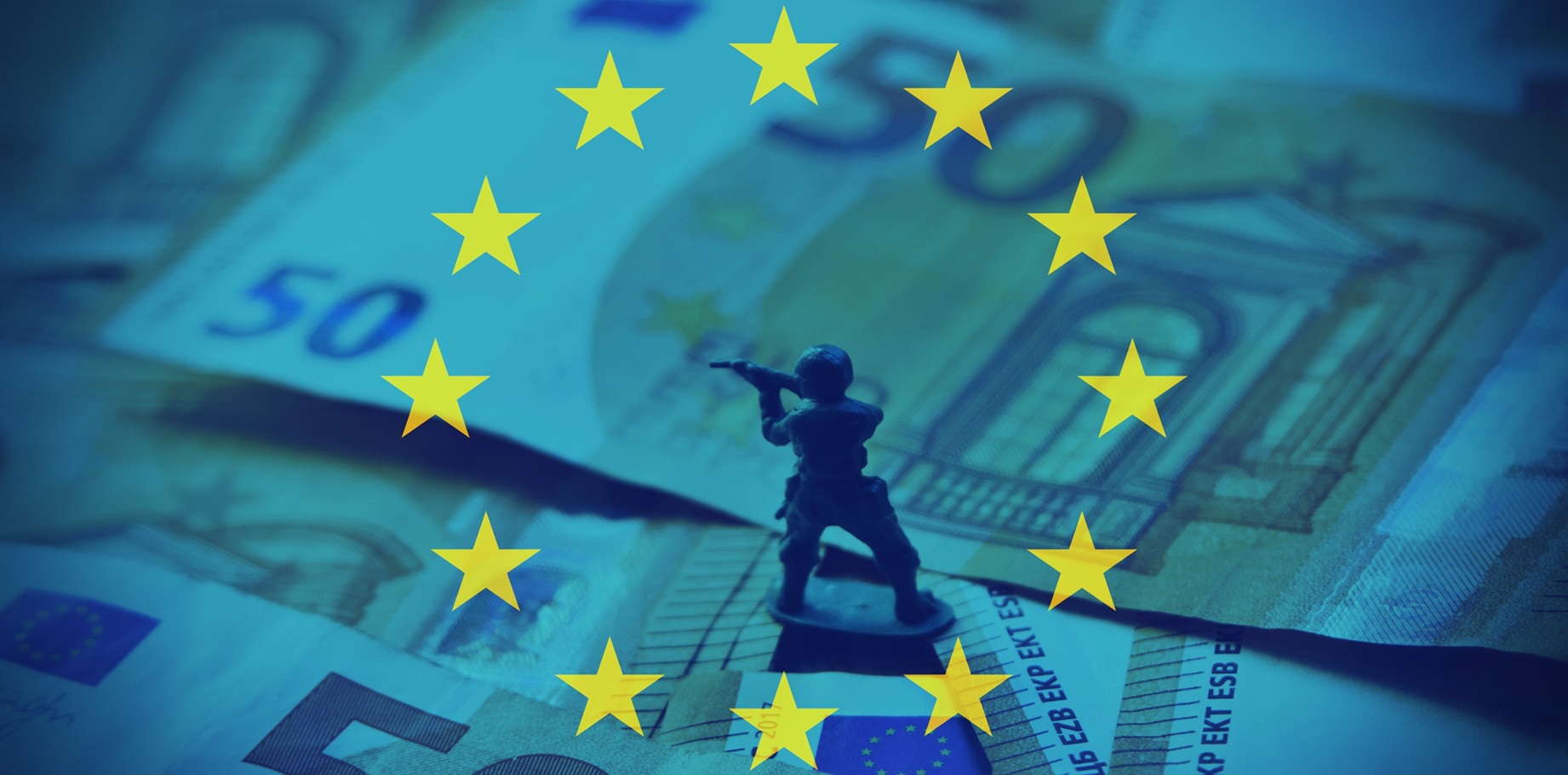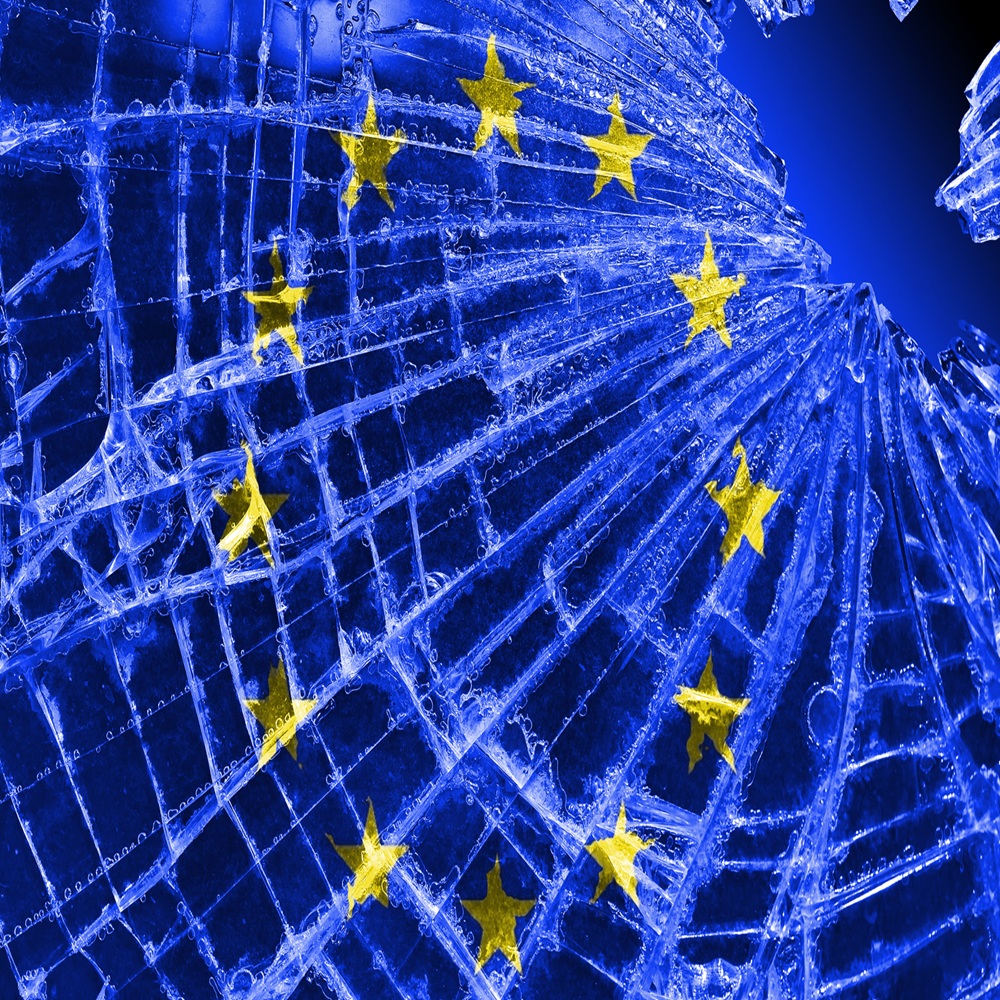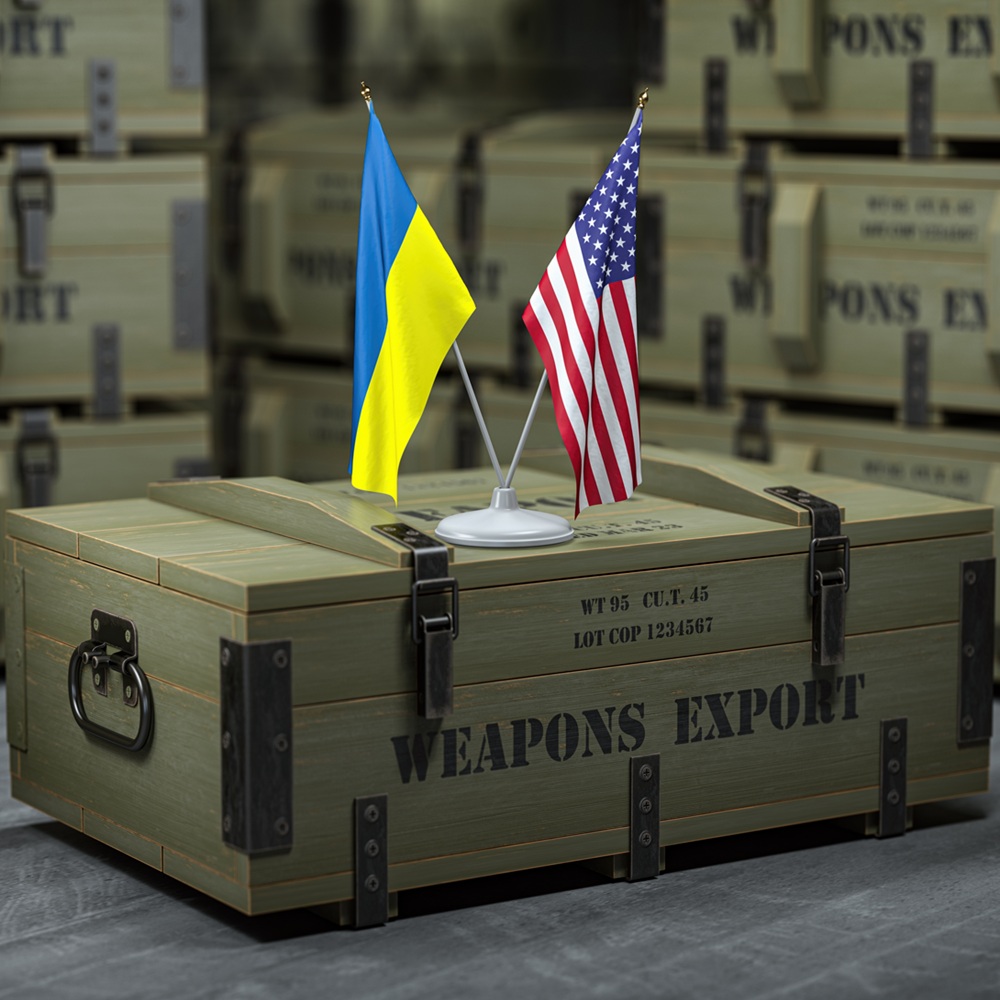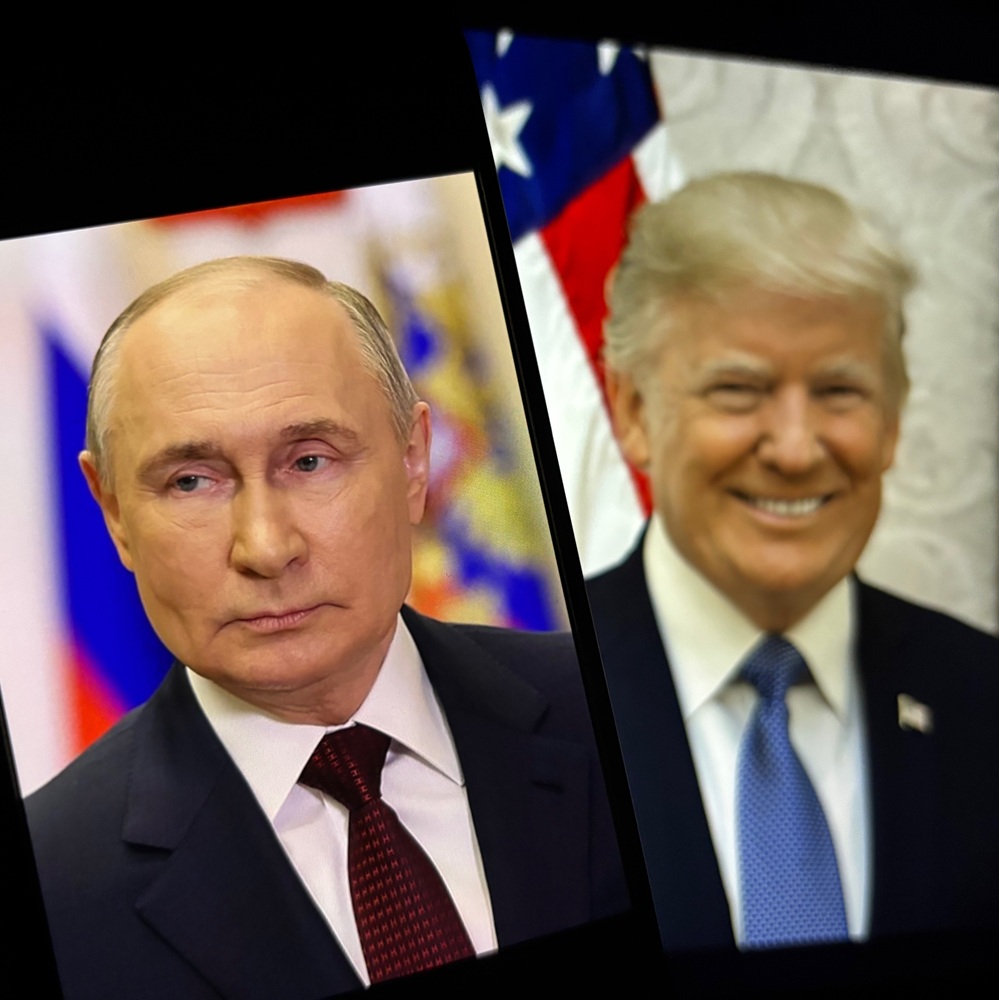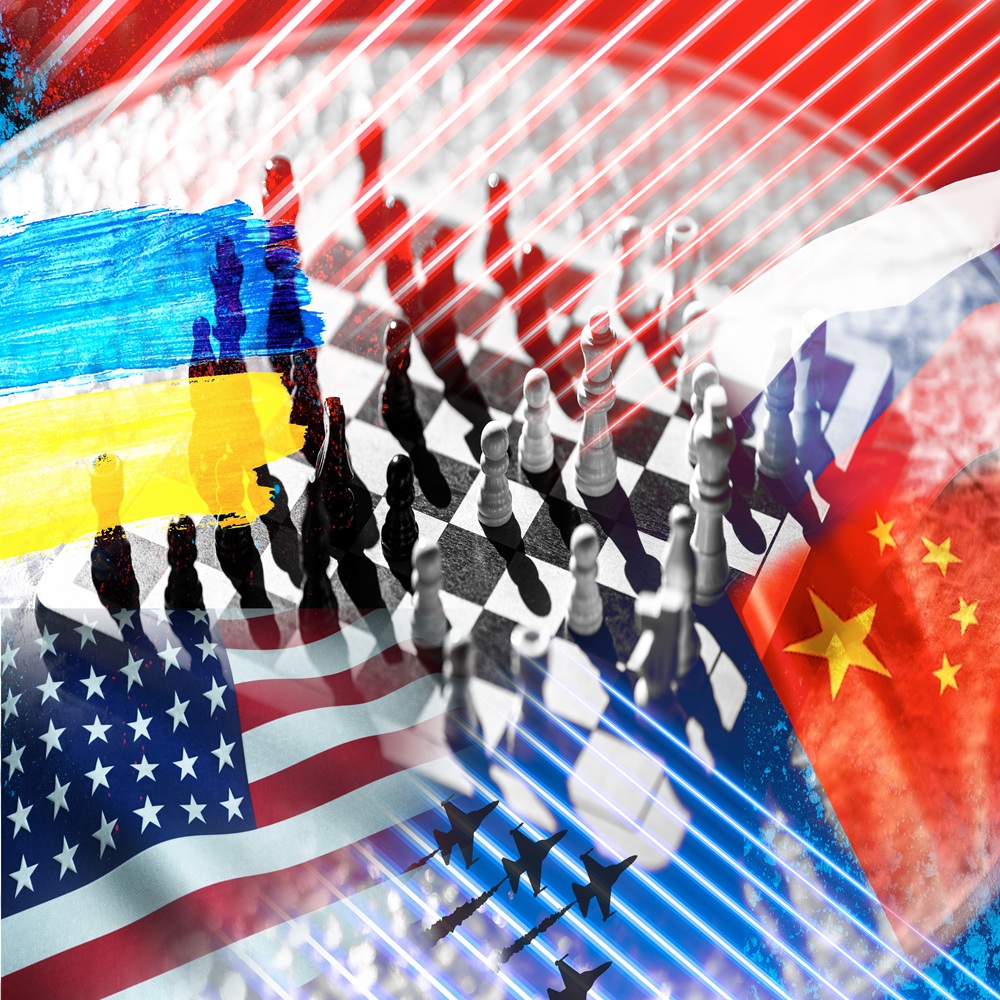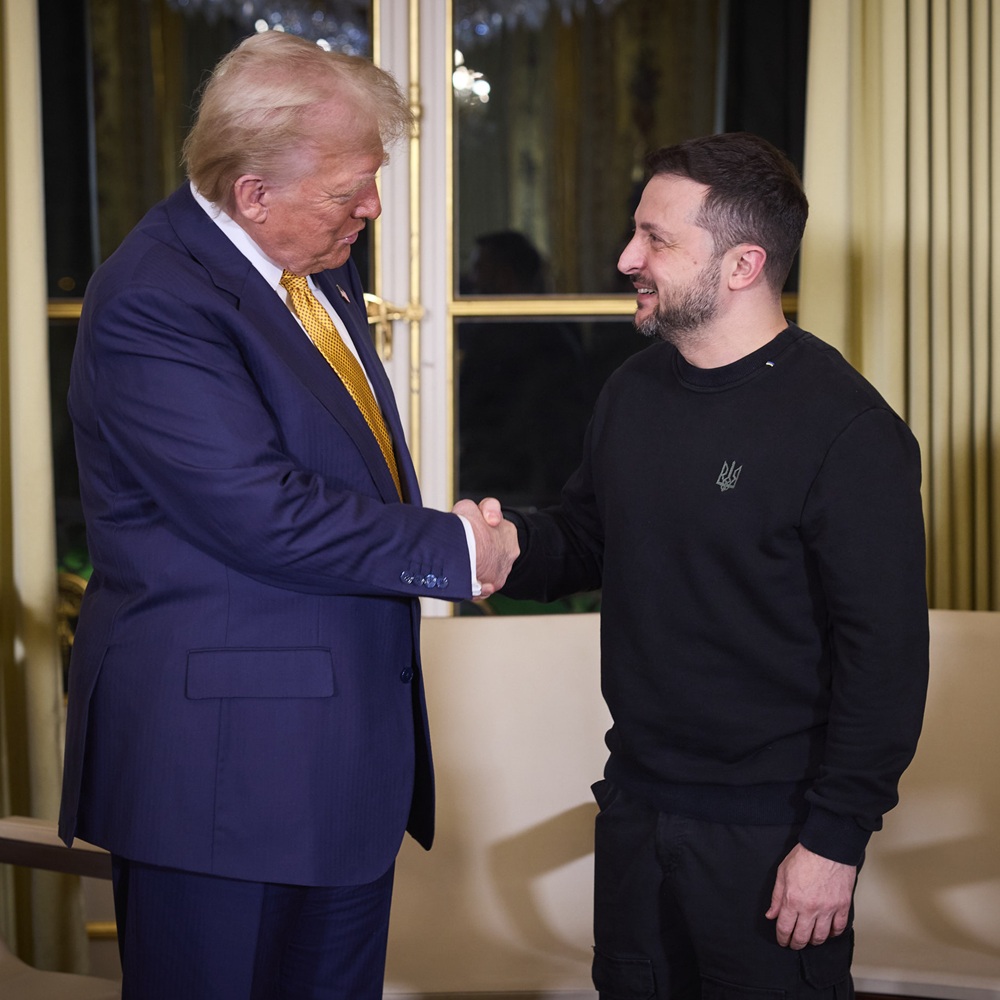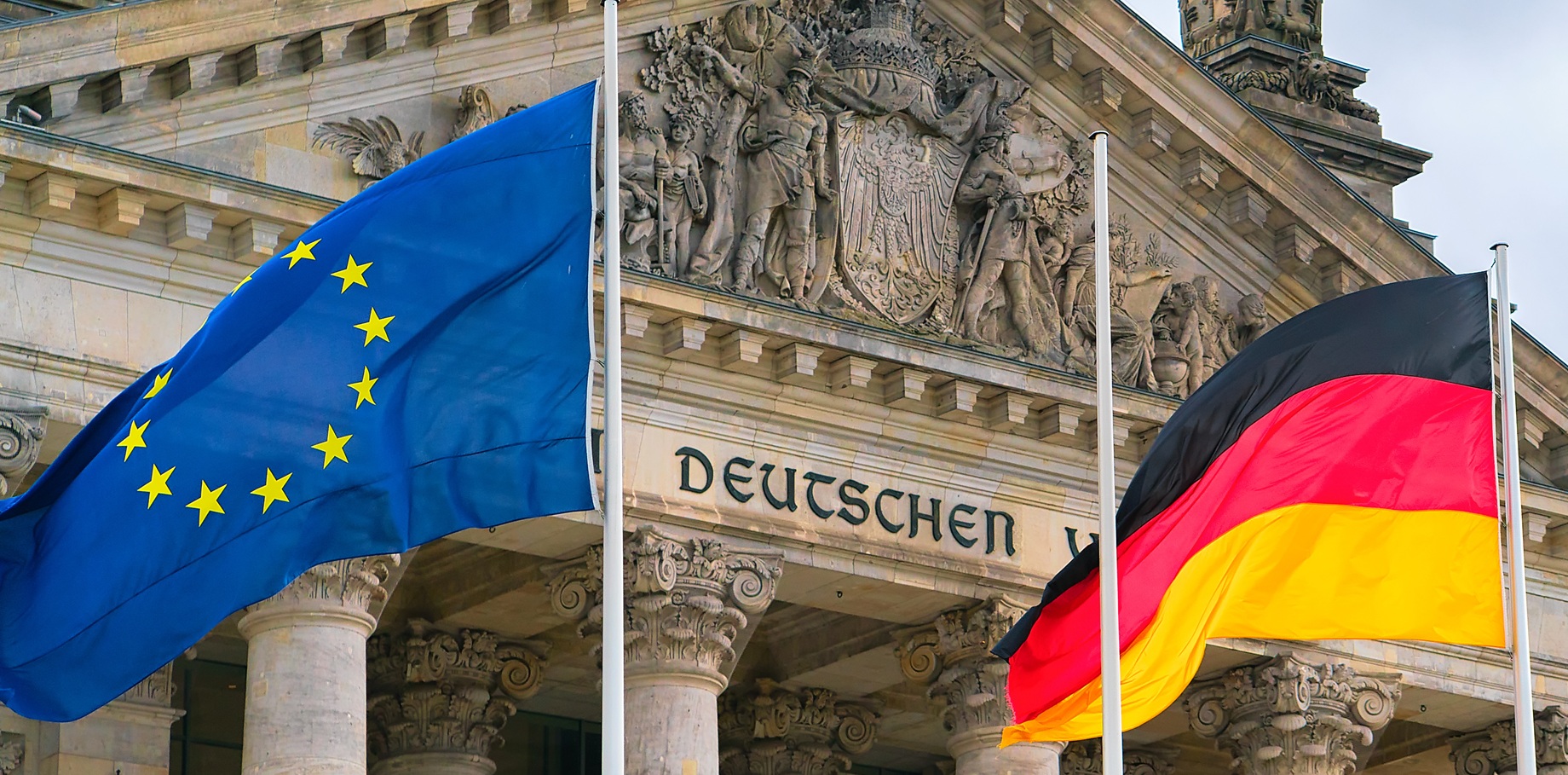
Germany - the EU's challenging leadership in challenging times
by Krzysztof Sliwinski
한국어로 읽기 Leer en español In Deutsch lesen Gap اقرأ بالعربية Lire en français Читать на русском Abstract This paper departs from an assumption derived from Liberal Intergovernmentalism theory: Germany is a de facto leader of European integration processes and the European Union as an institution.The first part of the analysis explores priorities and their corresponding challenges for the new German CDU-led cabinet. It examines issues around the ongoing war in Ukraine, transatlantic relations, and outstanding questions about German-China cooperation.The second part looks at the recently proposed Security and Defence Union (SDU) project and its various challenges.In conclusion, it is suggested that Germany will likely dominate future defence efforts, the actual shape of which will also be determined by other players such as the US, Russia, China, Iran, Israel, India or Turkey.Key Words: Germany, Foreign Policy, EU, Geopolitics Introduction According to the Federal Election Commission, the German election on February 23 saw a record-breaking voter turnout of 82.5%. That's an increase from 76.6% in 2021 and the highest voter participation since unification in 1990. With vote counting finished, preliminary results show that the conservative Christian Democratic Union (CDU), led by Chancellor candidate Friedrich Merz, and its sister Christian Social Union (CSU) won the election with 28.6% of the vote. (As of the writing of this paper, the coalition negotiations are in progress, and the new Merz-Lead government will likely be formed by Easter this Year). Before we analyse the challenges ahead of Merz's Government, let us briefly note that Friedrich Merz belongs to the so-called 'Davos Crowd'. He regularly attends the World Economic Forum Meetings. Before fully dedicating himself to politics, Merz worked as a corporate lawyer and held a significant position at BlackRock, a leading global investment management firm. He served as the head of the supervisory board of BlackRock's German branch, a role that has drawn scrutiny due to BlackRock's CEO, Larry Fink, being a key figure at the WEF. By his critics, Merz is seen as a 'globalist puppet' who is likely to promote Agenda 2030-related policies and the Klaus Schwab Great Reset initiative at the expense of German citizens. Challenges ahead of Germany and its new political leadership Under the new CDU-led Government, Germany will face significant international challenges in supporting Ukraine, managing US relations, and balancing China ties. - The war in Ukraine The ongoing war in Ukraine is a pressing issue, requiring Germany to sustain its support for Ukraine while managing its own energy security and economic interests. This involves coordinating with other EU and NATO members, which could be challenging given potential fatigue and differing national priorities. The ongoing war in Ukraine, initiated by Russia's invasion in 2022, remains a critical challenge for Germany. The new CDU-led Government must sustain this support amidst potential fatigue and economic pressures. It goes without saying that the war has disrupted energy supplies, with Germany suspending the Nord Stream 2 pipeline and facing higher energy costs. The CDU, under Merz, has advocated for a strong stance against Russia. Still, challenges include maintaining EU unity, especially with some member states favouring dialogue with Moscow, and managing domestic economic impacts, such as inflation and cost-of-living pressures. This support towards sustained support to sanctions against Russia seems necessary, but it may strain Germany's resources and require coordination with NATO and EU partners. - Navigating Transatlantic Relations Germany's relationship with the United States, mainly through NATO, is vital for its security and economic interests. Even before the Trump election, German experts were ready to address the incoming challenges. Trump's opposition to previous policies, such as climate commitments and trade agreements, has led to tensions. Traditionally aligned with the US, the CDU knew the need to balance cooperation on security issues, such as defence spending, with potential trade and climate policy disagreements. This challenge is compounded by the need to prepare for a world where Germany must pay more for its security, especially given the war in Ukraine. Today, Germans are painfully aware that the relations with the United States are crucial, especially given that Trump's presidency has already led to tensions over trade and security policies. Germany seems willing to balance cooperation with the US while asserting its interests and those of the EU. This will be complicated due to conflicting interests regarding trade and the economy. Trump is expected to continue his protectionist policies, imposing tariffs on German goods like cars to address the trade deficit. This will likely lead to retaliatory measures from Germany and the EU, straining economic ties. In fact, the European Commission already declared it would impose "countermeasures" from April 1 in response to US tariffs of 25 per cent on steel and aluminium imports. Regarding defence and security - Trump will likely pressure Germany to increase defence spending, possibly threatening to reduce US troops in Germany, as he did in his first term by announcing a withdrawal of 12,000 troops (later reversed by Biden). This could push Germany to enhance its defence capabilities and meet NATO targets. As for climate change and energy - Trump's scepticism towards climate agreements, such as the Paris Accord, will likely continue, clashing with Germany's leadership in renewable energy and its goal to phase out coal by 2038 at the latest. Finally, there is the question of foreign policy, especially Russia and Ukraine - Trump's potential alignment with Russia could complicate Germany's position, particularly given its significant support for Ukraine. Reports suggest Trump might cut Ukraine out of negotiations with Russia, forcing Germany to take a more independent stance. - Balancing Economic Relations with China Germany's economic ties with China are significant, with China being a primary export market and investment partner. However, the new German Government faces the challenge of addressing security and human rights concerns, such as intellectual property theft and China's assertive foreign policy. The CDU-lead coalition may push for greater diversification of supply chains and stricter regulations, as suggested by recent analyses. This balancing act is crucial, as economic dependence on China could limit Germany's ability to take a firm stance on delicate issues regarding human rights. The challenge is maintaining economic benefits while mitigating risks, potentially through EU-level coordination and bilateral agreements, which could create diplomatic pressures and affect Germany's global trade position. Economic ties and the challenge of de-risking. Germany has deep economic ties with China, with significant trade and investment flows, particularly in the automotive and manufacturing sectors. However, the new government will face the challenge of reducing economic dependence, as outlined in the CDU's election platform, which calls for "reducing reliance on China". This is driven by concerns over supply chain vulnerabilities, as seen in the CDU's criticism of previous decisions like allowing a Chinese state-owned company to invest in Hamburg's port. The challenge lies in implementing de-risking strategies without triggering economic repercussions, such as reduced exports or investment pullbacks. Recent statements from Merz, such as warning German firms about the "great risk" of investing in China, indicate a stricter stance. Still, experts question whether this rhetoric will translate into firm policy, given the economic interests at stake. Security concerns and strategic competition are at the forefront - Friedrich Merz recently grouped China with Russia, North Korea, and Iran in an "axis of autocracies," highlighting perceived threats to German and European security. The CDU's position paper, adopted around Easter 2023, states that the idea of peace through economic cooperation "has failed with regard to Russia, but increasingly also China," signalling a shift toward a more security-focused approach. This includes addressing issues like technology transfer, intellectual property theft, and cybersecurity, which could strain bilateral relations. The challenge is strengthening defence and economic security measures without escalating tensions, particularly as China's military capabilities grow. Merz's focus on European strategic autonomy, especially in light of US policy shifts under Donald Trump, may lead to increased cooperation with EU partners in China. Human rights and values-based diplomacy are important for the incoming CDU-led government. Therefore, it is likely to take a firmer stance on human rights issues, reflecting the CDU's emphasis on preserving the rule-based international order. Merz has consistently called China "an increasing threat to [German] security," suggesting a values-based approach that could lead to diplomatic tensions. The challenge is maintaining constructive engagement while addressing these issues, especially as China has offered a "stable, constructive partnership" post-election, seeking to inject "new vitality" into China-EU relations. Balancing economic interests with values-based diplomacy will be a key test for Merz's government. As for the coordination with EU partners, Germany's China policy should probably align with the EU's broader strategy, which has shifted toward de-risking under the European Commission. This requires coordination with other member states, some of whom may prioritise economic ties over security concerns, creating potential friction. The challenge is to ensure a united EU front, particularly in trade negotiations and investment screening, where Germany's leadership will be crucial. Merz's advocacy for improved coordination with major European allies such as France and Poland suggests focusing on EU unity. However, coalition dynamics, potentially involving the dovish Social Democrats, could dilute this approach. Compared to Angela Merkel's pragmatic approach and Olaf Scholz's cautious stance, Merz's leadership is expected to mark a "Zeitenwende" or turning point, with a more critical and security-focused China policy. However, the extent of change depends on coalition dynamics, with potential partners like the SPD possibly moderating his approach, creating tension between rhetoric and policy implementation. The EU as a security actor This section of the paper outlines the significant challenges ahead for the EU, considering Germany's influence and the broader geopolitical landscape, especially regarding the future EU defence cooperation and its potential relations with NATO. According to German experts and policymakers, The EU must maintain unity in supporting Ukraine amid Russia's ongoing invasion. Under the CDU, Germany will most likely continue its policy in this regard, providing military aid and economic support. According to the Federal Foreign Office, the German Government has, since the start of the war, made available around 43.62 billion euros in bilateral support for Ukraine (as of 31 December 2024); this aid includes the critical area of air defence, a substantial winter assistance programme and energy assistance, help for those who have fled Ukraine, humanitarian aid, mine clearance operations and assistance with efforts to investigate and document war crimes. Furthermore, Ukraine and Germany signed a bilateral agreement on security cooperation on 16 February 2024. European Army The former Chancellor, Olaf Scholz, at Charles University in Prague on 24 August 2022, recently elaborated on German leadership's vision regarding the Europen defence efforts. His presentation paints a broad picture of the future of the EU at the beginning of the 3rd decade of the 21st century against the backdrop of the Russian invasion of Ukraine. Among the four 'revolutionary' ideas mentioned by Scholz, two stand out in particular. Firstly, given the further enlargement of the European Union for up to potentially 35 states, a transition is urged to majority voting in Common Foreign and Security Policy. Secondly, regarding European sovereignty, the German Chancellor asserts that Europeans grow more autonomous in all fields, assume greater responsibility for their security, work more closely together, and stand yet more united to defend their values and interests worldwide. In practical terms, Scholz indicates the need for one command and control structure for European defence efforts. The German leadership is not always openly claimed, at least verbally. Instead, the German National Security Strategy of 2023 mentions Germany's 'special responsibility' for peace, security, prosperity, and stability and the Federal Government's 'special responsibility' for establishing the EU Rapid Deployment Capacity. In the same vein, German leadership posits their country as a leader in European Security, declaring the importance of becoming the 'best equipped armed force' in Europe. Former Chancellor Scholz would, however, make it an open claim at times: "As the most populous nation with the greatest economic power and a country in the centre of the continent, our army must become the cornerstone of conventional defence in Europe, the best-equipped force". The re-entrance of Trump into global politics only reinvigorated German calls for stronger defence cooperation. Amid a drive to shore up support for Ukraine after Donald Trump halted US military aid and intelligence sharing, European leaders held emergency talks in Brussels (6 March 2025). They agreed (Hungary did not support the document) on a massive increase in defence spending. According to the European Council's Conclusions, the European Commission is to propose a new EU instrument to provide Member States with loans backed by the EU budget of up to EUR 150 billion. Apart from that, the document mentions several other instruments that are supposed to enhance Europe's defence capabilities: additional funding sources, new EU instrument for loans, support from the European Investment Bank (EIB), mobilising private financing, priority areas for defence capabilities (air and missile defence; artillery systems, including deep precision strike capabilities; missiles and ammunition; drones and anti-drone systems; strategic enablers, including in relation to space and critical infrastructure protection; military mobility; cyber; artificial intelligence and electronic warfare), joint procurement and standardisation, simplification of legal frameworks and finally coordination with NATO. Overall, Ursula von der Leyen, the President of the European Commission, presented a plan worth EUR 800 billion to increase European defence spending against the backdrop of the Russian invasion of Ukraine. Will it be enough to create actual European defence capabilities, finally? Time will show. Europeans have been talking about common European defence for decades. So far, most of their achievements fall short of lofty political declarations. Consequently, on March 19 this year, the European Commission unveiled the Joint White Paper for European Defence 2030. (White papers are policy documents produced by the Governments that set out their proposals for future legislation.) Accordingly, the 22-page-long document consists of numerous 'bold' ideas to advance European defence cooperation toward a European Army. The key threats to European Security include correspondingly: military aggression from Russia, strategic competition (there is increasing strategic competition in Europe's wider neighbourhood, from the Arctic to the Baltic to the Middle East and North Africa), transnational challenges (issues such as rapid technological change, migration, and climate change are seen as serious stressors on political and economic systems), actions of authoritarian states (countries like China are asserting their influence in Europe and its economy, posing a strategic challenge due to their authoritarian governance style), hybrid threats (these include cyber-attacks, disinformation campaigns, and the weaponisation of migration. The document notes that these threats are interconnected and increasingly prevalent), geopolitical rivalries (ongoing geopolitical tensions in various regions, particularly in the Middle East and Africa, are highlighted as contributing to instability that directly affects Europe) and last but not least instability from neighboring Regions (proximity to conflict zones, especially in North Africa and the Middle East, leads to spillover effects such as migration and economic insecurity). Notably, at the very beginning of the document, the EC makes an unequivocal statement: "The future of Ukraine is fundamental to the future of Europe as a whole. Since 2022, we have seen a full-scale, high-intensity war on the borders of the European Union with hundreds of thousands of casualties, mass population displacement, huge economic costs and deliberate destruction of vital energy systems and cultural heritage. The outcome of that war will be a determinative factor in our collective future for decades ahead". The document proposes several measures to support Ukraine amid its ongoing conflict, mainly through a "Porcupine strategy" to enhance Ukraine's defence and security capacity. The "Porcupine strategy" includes elements such as: Increased Military Assistance - The EU and its Member States should significantly step up military and other assistance to Ukraine (providing large-calibre artillery ammunition with a target of delivering a minimum of 2 million rounds per year, supplying air defence systems, missiles (including deep precision strikes), and drones, supporting Ukraine's procurement of drones and further developing its production capacity through joint ventures with European industries and training and equipping Ukrainian brigades and supporting the regeneration of battalions). Direct Support to Ukraine's Defense Industry (the document emphasises the importance of directly supporting Ukraine's defence industry (encouraging EU Member States to procure directly from Ukraine's defence industry for donations to Ukraine and utilising EU loans to boost Ukraine's defence industry spending, estimated to reach around EUR 35 billion in productive capacity by 2025). Enhanced Military Mobility (the EU aims to improve military mobility corridors extending into Ukraine, facilitating smoother deliveries of military assistance and enhancing interoperability). Access to EU Space Assets (Ukraine should have enhanced access to EU space-based governmental services, which would aid in its defence capabilities). Coordination of Military Support (the EU Military Staff Clearing House Cell will coordinate military support for Ukraine, enhancing collaboration with NATO and other partners). Integration of Ukraine into EU Defense Initiatives (the document proposes integrating Ukraine's defence industry into EU initiatives and encouraging its participation in collaborative defence projects. Conclusion A 'Security and Defence Union' (SDU) has been recently proposed as a new institutional form of military cooperation among EU Members. It is suggested that the SDU includes the UK, and given the special attention paid to Ukraine in the White Paper, it is logical to surmise that it (Ukraine) will also be a de facto member. The devil lies in details, however, and so financially speaking, Europeans have to address numerous challenges. For example, the European Defence Fund (EDF) details Euro 8 billion over 7 years (approx. Euro 1.12 billion/year), supports R&D, and has committed Euro 5.4 billion since May 2021. Meeting these ambitious goals will be especially challenging given the funding constraints (EU instruments like EDF and EDIP have limited impact; EDIP at €750 million/year is less than 1% of €90 billion 2024 procurement, needs €9 billion/year for 10% impact), capability and industry gaps (post-Cold War cuts left significant gaps, needing €160 billion by 2018 if 2008 levels maintained, €1.1 trillion if all spent 2% GDP 2006-2020), political and partnership issues (US scepticism, especially under second Trump administration, makes EU states cautious), policy integration (balancing security and economic priorities). Against this backdrop, Germany claims to rise to the occasion and take the leading role, passing a new defence budget, referred to by media as 'bazooka'. A massive increase in military spending is paralleled by another military aid package to Ukraine (The €3 billion package approved by the Bundestag Budget Committee comes on top of the €4 billion in military aid to Ukraine already planned in the 2025 budget). Where does it leave NATO? Much depends on Trump's vision of the future of European Security, his administration's bilateral relations with Germany, and most importantly, the global chessboard attended by players such as Russia, China, Iran, Israel, India and Turkey. References Zeier, Kristin, and Gianna-Carina Grün. “German Election Results Explained in Graphics.” DW, February 27, 2025. https://www.dw.com/en/german-election-results-explained-in-graphics/a-71724186. Hasselbach, Christoph. “German government coalition: Can CDU, SPD come together?”. DW, 3 March, 2025. https://www.dw.com/en/german-government-coalition-can-cdu-spd-come-together/a-71850823 Hasselbach, Christoph. “German foreign policy: Crisis mode to continue in 2025”. DW, 26 December 2024. https://www.dw.com/en/german-foreign-policy-crisis-mode-to-continue-in-2025/a-71092683 Paternoster, Tamisin. “How Germany's car industry is bracing for Donald Trump's tariffs”. Euronews. 7 March, 2025. https://www.euronews.com/business/2025/03/07/how-germanys-car-industry-is-bracing-for-donald-trumps-tariffs France24. “EU hits back with countermeasures against Trump's ‘unjustified’ steel tariffs”, 12 March 2025. https://www.france24.com/en/europe/20250312-eu-hits-back-countermeasures-trump-unjustified-steel-tariffs-europe-commission TVP World, “Trump mulls withdrawing U.S. troops from Germany, The Telegraph reports”. 8 March, 2025. https://tvpworld.com/85487959/trump-considering-withdrawing-us-troops-from-germany-the-telegraph-reports Twidale, Susanna. “German coal power phase-out likely before 2038 due to economics, says climate envoy”. Reuters, 25 June, 2024. https://www.reuters.com/business/environment/german-coal-power-phase-out-likely-before-2038-due-economics-says-climate-envoy-2024-06-24/ Tankersley, Jim and F. Schuetze, Christopher. “Shocked by Trump, Europe Turns Its Hopes to Germany’s Election”. The New York Times, 23 February, 2024. https://www.nytimes.com/2025/02/22/world/europe/germany-election-trump.html Chaney, Eric. “What Challenges is Germany Facing?”. Institut Montaigne. https://www.institutmontaigne.org/en/expressions/what-challenges-germany-facing Alkousaa, Riham. “Germany election: what are the policies of the CDU conservatives”. Reuters, 25 February 2025. https://www.reuters.com/world/europe/policies-german-election-favourites-cdu-conservatives-2025-02-18/ South China Morning Post. “Will Merz’s tough talk on China fizzle out if he becomes leader of Germany?” https://www.scmp.com/news/china/diplomacy/article/3292397/will-merzs-tough-talk-china-fizzle-out-if-he-becomes-leader-germany Rhodium Group, “Wind of Change: German China Policy After the Election – Rhodium Group.” 12 February 2025. https://rhg.com/research/wind-of-change-german-china-policy-after-the-election/ Rhodium Group, “Wind of Change: German China… op.cit. Rinaldi, Gabriel. “German Christian Democrats rewrite Merkel’s China playbook”. Politico. 26 March 2023. https://www.politico.eu/article/german-christian-democrats-to-overturn-angela-merkels-china-policy/ Radunski, Michael. “German conservatives call for China policy Zeitenwende • Table.Media.” Table Briefings. 19 March 2023. https://table.media/en/china/feature/union-calls-for-china-policy-turnaround/ South China Morning Post. “Will Merz’s tough talk on China fizzle out if he becomes leader of Germany? | South China Morning Post. https://www.scmp.com/news/china/diplomacy/article/3292397/will-merzs-tough-talk-china-fizzle-out-if-he-becomes-leader-germany South China Morning Post. “China offers ‘stable, constructive’ partnership with Germany after Friedrich Merz’s election win.” https://www.scmp.com/news/china/diplomacy/article/3299946/china-offers-stable-constructive-partnership-germany-after-friedrich-merzs-election-win Verhelst, Koen. “Friedrich Merz wants to lead Europe on the economy. Can he?” POLITICO. 19 February, 2025. https://www.politico.eu/article/friedrich-merz-wants-to-lead-europe-on-the-economy-can-he/ Rinaldi, Gabriel. “German Christian Democrats… op.cit. Federal Foreign Office, “Germany continues to stand with Ukraine – the third anniversary of Russia’s full-scale invasion”. https://www.auswaertiges-amt.de/en/aussenpolitik/laenderinformationen/ukraine-node/ukraine-solidarity-2513994 The Federal Government (2022) Speech By Federal Chancellor Olaf Scholz at The Charles University In Prague On Monday, August 29 2022. https://www.bundesregierung.de/breg-en/news/scholz-speech-prague-charles-university-2080752 National Security Strategy. Robust. Resilient. Sustainable. Integrated Security for Germany (2023). Federal Foreign Office, Werderscher Markt 1, 10117 Berlin. https://www.nationalesicherheitsstrategie.de/National-Security-Strategy-EN.pdf “Germany must become 'the best equipped armed force in Europe', Scholz says.” Euronews, September 16, 2022. https://www.euronews.com/my-europe/2022/09/16/germany-must-become-the-best-equipped-armed-force-in-europe-scholz-says “Germany must become 'the best equipped armed force in Europe', Scholz says”, Euronews, 16 September, 2022. https://www.euronews.com/my-europe/2022/09/16/germany-must-become-the-best-equipped-armed-force-in-europe-scholz-says European Council. "Conclusions – 6 March 2025." EUCO 6/25. Brussels: General Secretariat of the Council, March 6, 2025. https://www.consilium.europa.eu/en/press/press-releases/2025/03/06/special-european-council-6-march-2025/ See more at: https://www.theguardian.com/world/2025/mar/06/watershed-moment-eu-leaders-close-to-agreeing-800bn-defence-plan-ukraine The European Intervention Initiative (EI2) is a joint military project between 13 European countries outside of existing structures, such as the North Atlantic Treaty Organization (NATO) and the European Union's (EU) defence arm. The Initiative was first proposed by French President Emmanuel Macron in his Sorbonne keynote in September 2017. ASee more at: https://archives.defense.gouv.fr/content/download/535740/9215739/file/LOI_IEI%2025%20JUN%202018.pdf A week before on 12th of March 2025 European Parliament adopted a ‘resolution on the ehite paper on the future of European defence’ which includes 89 points. See more at: https://www.europarl.europa.eu/doceo/document/TA-10-2025-0034_EN.html European Commission, High Representative of the Union for Foreign Affairs and Security Policy. "Joint White Paper for European Defence Readiness 2030." Brussels, March 19, 2025. JOIN(2025) 120 final. https://defence-industryspace.ec.europa.eu/document/download/30b50d2c-49aa-4250-9ca6-27a0347cf009_en?filename=White%20Paper.pdf See more at: https://www.eeas.europa.eu/node/34278_en See more at: https://defence-industry-space.ec.europa.eu/eu-defence-industry/european-defence-fund-edf-official-webpage-european-commission_en See more at: https://www.cer.eu/publications/archive/policy-brief/2025/towards-eu-defence-union See more at: https://commission.europa.eu/topics/defence/future-european-defence_en “Germany's historic spending plan has passed - so what is the money going to be spent on?”, The Journal, 22 March 2025. https://www.thejournal.ie/germany-spending-plan-explainer-6656255-Mar2025/ Sexton Karl and Hubenko Dmytro, “Germany approves $3 billion in military aid for Ukraine”. DW, 21 March 2025. https://www.dw.com/en/germany-approves-3-billion-in-military-aid-for-ukraine/a-72001265









